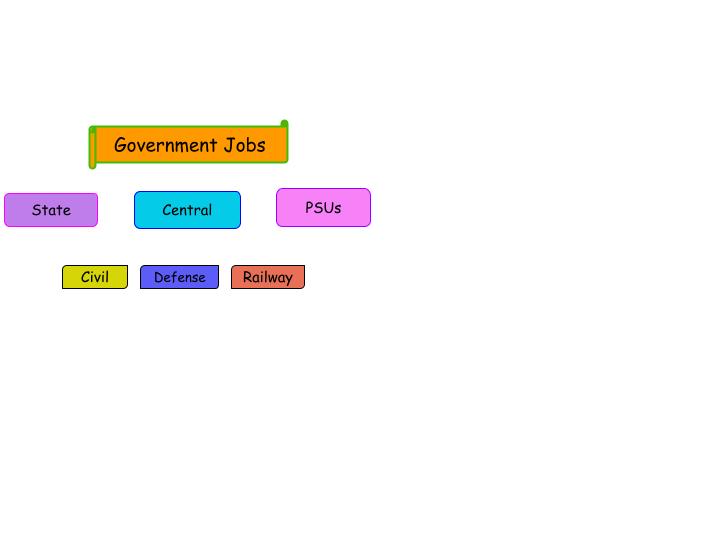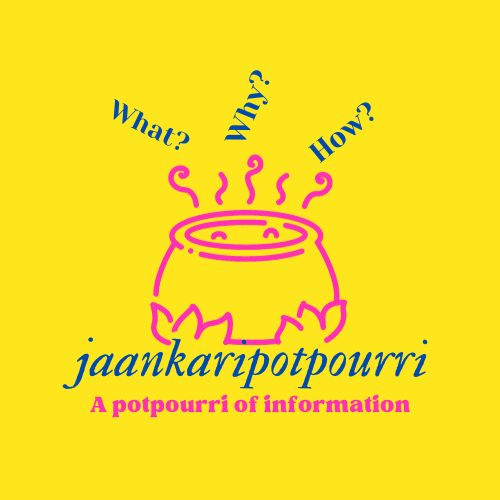
We see people preparing for Government jobs for years in a row, losing golden period of their youth in the process and still the number of candidates going after the Government jobs is on the rise every year. We can’t stop but wonder what’s this fuss all about! Are Government jobs in India worth your time and effort ? Government jobs, in other words, ‘Sarkari Naukri’, has a better ring to it. We all may have heard these words at least once in our lives. Some of us actually more than the others. These two words actually form a brand in itself. Once you are branded with these words you become a precious product in this market called ‘society’. Your value skyrockets to another dimension. All of a sudden you become sarkari ‘babu’ or ‘saheb’ if you are a guy and ‘madam ji’ if you are a girl. And let’s be honest, who doesn’t like attention ? Not to mention the power and respect that comes with a government job. Add to it the money factor and you are sorted for life. You are a celebrity now! People look up to you. Your relatives come to you seeking guidance for their kids. Coaching centers approach you for recommendations. Oh well, even the media & press is interested in you. Ahem!
Now that we have talked about a few perks of the Government jobs in India, let’s dive into the main context without digressing any further.
What is a Government job ?
The answer here in simple words is, a government job is when you serve the government, either directly or indirectly. You are a member of a service or hold a post under the Central Government or a State Government.

Why should you choose a Government job ?
Apart from a few perks we have talked about earlier, let’s dig deeper into the technical reasons of why you should choose a government job and are government jobs in India worth the effort ?.
Job Security

The very first thing to come to anyone’s mind when they think about government jobs is ‘job security’. Is it true though ? The answer is Yes indeed! We have a saying here in government offices, ‘it’s hard to get in the service, it’s harder to get out!’ Unless you do something extremely scandalous, no one has the power to get you out. People here don’t bother to disturb the convention that’s been going on for ages. They are complacent enough to let you be yourself. If you want to work arduously or you want to slack your day off, literally no one cares.
This doesn’t mean that productivity is not appreciated. Quite the opposite actually. Which brings us to our next point.
Easier to outperform your co-workers

Since most of the people here do the bare minimum to get by, it is all the more of a chance to shine brighter for someone who actually puts in a little bit of effort. For example, if people here usually take 5-6 attempts to clear a departmental exam, you can become the talk of the town (or the department in this case!) if you clear the exam in a single attempt, which if you ask me, is not too difficult for someone who has already cracked the government competitive exam. I have seen Group ‘C’ employees who are in direct contact with Group ‘A’ officers. Only by gaining knowledge in their field of work and using that knowledge to do a little extra than they are supposed to do, they become so indispensable that even the Head of the Department reaches out to them directly. Which again brings us to our next point.
Networking

There are numerous opportunities to make contacts. In any department you join, you can build your network of contacts inside as well as outside of your department. In some way or another you come in contact with other fields of work. For example, let’s say you work in the Pension department, then it’s a usual thing to meet people from the police department or government hospitals and so on. If you are in the GST or IT department, influential businessmen approach you and treat you with respect because of course you know better than them when it comes to taxes as most of them are not up to date with government rules and regulations. With a little knack of social skills, you can have your phonebook saved with so many powerful contacts which normal people can only dream of.
Work-life Balance

It’s easier to find a work-life balance in government jobs. There are mostly time-based promotions in government jobs, hence no pressure to perform extraordinarily to climb the ladder in your career. You can easily find the time to study if you want to prepare for something else or you can spend the time with your family. You usually get two days off in a week and the weekends are very peaceful in government jobs, no work related calls are there and no work from home is expected from you. Once you leave the office you can put the work off of your mind and enjoy the rest of the time however you want.
The ‘Why to choose’ part can go on forever, so let’s jump into our next part for now.
How to get a Government Job ?
There are a number of competitive exams for various government jobs like Civil Services Examination (CSE), SSC exams, State PSC exams, etc. You will have to qualify in these exams first after which you’ll get selected for a post depending on the exam you have cleared and your overall rank out of all the candidates.
Let’s break it into a more systematic way.
- Exams for Central Government Jobs:
UPSC Exam: Civil Services Examination (CSE) which is conducted by the Union Public Service Commission (UPSC) is a national level exam for recruitment in the services like the Indian Administrative Service (IAS), Indian Foreign Service (IFS), Indian Police Service (IPS), Indian Audit & Accounts Service (IA&AS), etc.
SSC Exam: Staff Selection Commission conducts various exams like SSC CGL (Combined Graduate Level), SSC CHSL( Combined Higher Secondary Level), SSC Stenographer C & D, SSC MTS(Multi Tasking Staff) etc. to recruit to various Group ‘B’ & Group ‘C’ posts in ministries and departments of the Government of India.
- Exams for State Government Jobs:
State Public Service Commissions (PSCs) Exams: State PSCs like BPSC (Bihar Public Service Commission), UPPSC (Uttar Pradesh Public Service Commission), JPSC (Jharkhand Public Service Commission), WBPSC (West Bengal Public Service Commissions) etc. conduct exams to recruit to a variety of posts in different levels in the state government, like Sub Divisional Magistrate (SDM), Deputy Superintendent of Police (DSP), Sub Inspector (SI), Police Constable and many more.
- Exams for Public Sector Undertakings (PSUs) or Public Sector Enterprises (PSEs) :
PSUs are entities that are partially owned by the government of India or the state governments. Here entities mean companies, corporations, banks, etc. This list is huge but majorly PSUs are divided into three categories: Maharatnas, Navratnas and Miniratnas. Some of the renowned names are Oil and Natural Gas Corporation (ONGC), Bharat Heavy Electricals Limited (BHEL), National Thermal Power Corporation (NTPC), National Aluminium Company (NALCO), Bharat Sanchar Nigam Limited (BSNL), etc. The PSUs recruit every year by exams conducted by their departments or some of the PSUs also recruit through GATE (Graduate Aptitude Test in Engineering) scores.
Apart from these, there are exams conducted by the IBPS (Institute of Banking Personnel Selection) for recruitment in the banking sector, Railway Recruitment Board (RRB) conducts exams for various posts in the Railways and so on.
The point is, this list can go on forever. It’s an ocean of opportunities out there, you can either be afraid of its vastness and let it cast you away or you can have your compass ready and sail your ship your way!

